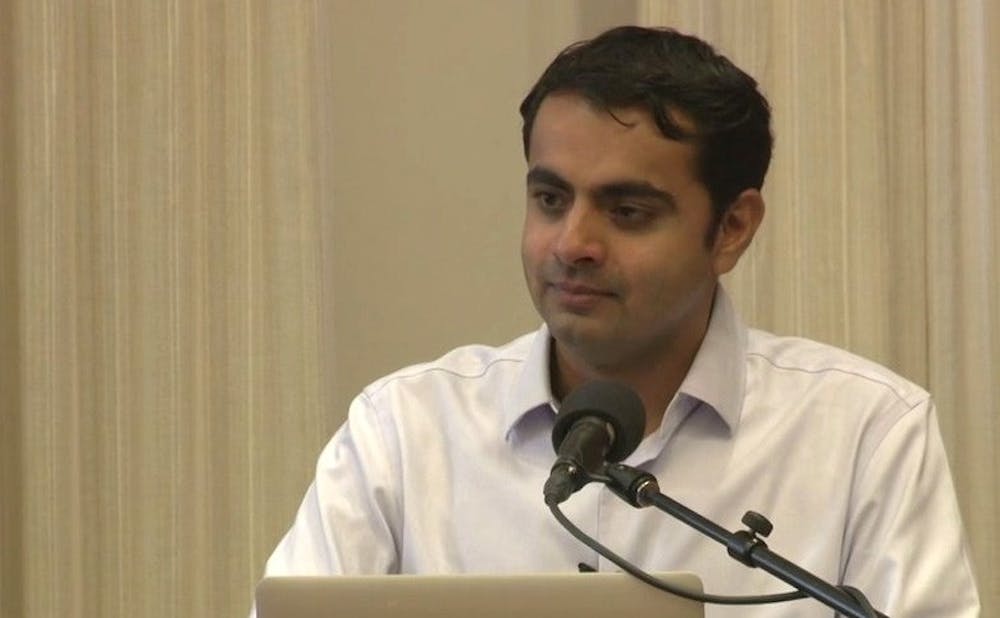After 18 months living among fishermen and pirates in eastern Africa, Jatin Dua returned to the United States prepared to dispel many myths surrounding maritime piracy.
Dua, a Ph.D. student in cultural anthropology, spent parts of 2010 and 2011 conducting research in Somalia and Kenya. He found that the development of piracy in the Indian Ocean was not simply a result of failed national governance, but rather the outcome of economic and political interactions between various groups. His focus on the complex historical origins of piracy led him to meet and interact with many key players, including members of different navies, lawyers, former hostages and the pirates themselves.
Along the way, Dua met many pirates who tried to justify their actions to him. These individuals often did not match the traditional media representation of Somali pirates, he said.
“There were stories of having been fishermen who were unable to fish because of overfishing,” Dua said. “There were also people who saw this as a business venture just like any other business venture… people who sought to and were sometimes successfully able to move from piracy to things like investment and business and real estate.”
Dua also spoke with individuals who had been held for ransom by pirates.
“Of course, talking to ex-hostages, you hear a very different story,” Dua said. “From the perspective of those who have been hijacked, these are very traumatic moments.”
Despite the inherent danger that came with studying the world of piracy, Dua said that he never felt unsafe while conducting his research. Making connections with people and earning their trust was key, he noted.
“Somalia is not the safest country in the world,” Dua said. “But at the same time, I would be somewhere at the invitation of someone who promised to give me protection, and in return they facilitated my movements. I always felt that if those who were providing that protection were on board with what I was doing, then things were fine.”
Doing research in the field can reveal truths that might be missed by only reading reports and secondhand accounts, said cultural anthropology professor Engseng Ho, who advises Dua.
One popular misconception about the issue of piracy is its cost to the global economy, Dua said, citing recent reports that estimated the yearly cost of piracy at $8 billion. Much of that amount is due to the costs of maintaining navies and private security forces, with only a small portion actually due to ransom payments collected by pirates, Dua said.
“What is often forgotten when we think about piracy is that its profits are actually distributed globally, beyond the people that we call pirates,” Dua said. “Insurance companies have been able to raise premiums, navies have a reason to be active and involved, and it’s provided a new space for private security companies to work. This is a new market in many ways.”
Another common misconception is that piracy is only rampant in areas that lack an organized central state. Dua noted that the areas that contain the largest networks of pirates are in fact the areas in which the government is most stable, whereas instable regions generate relatively little pirate activity.
Dua, who taught a class called “Cultures in Piracy” in Spring 2013, hopes to eventually author a book that places piracy in the Indian Ocean in its appropriate historical context. Dua said he is also interested in the fates of ex-pirates.
Dua’s research likely has implications beyond the field of anthropology, said Kevin Sobel-Read, visiting assistant professor of cultural anthropology. He noted that policymakers and researchers in other academic disciplines could all benefit from his work.
“His research gives us a way of understanding the phenomenon from a number of different viewpoints,” Ho said. “It gives us a sense of the range of people involved in it, from young men to little old women. It allows us to see in what ways it is a part of Somali society. It allows us to understand what this means for shippers and insurers and for navies of states.”
Get The Chronicle straight to your inbox
Signup for our weekly newsletter. Cancel at any time.

